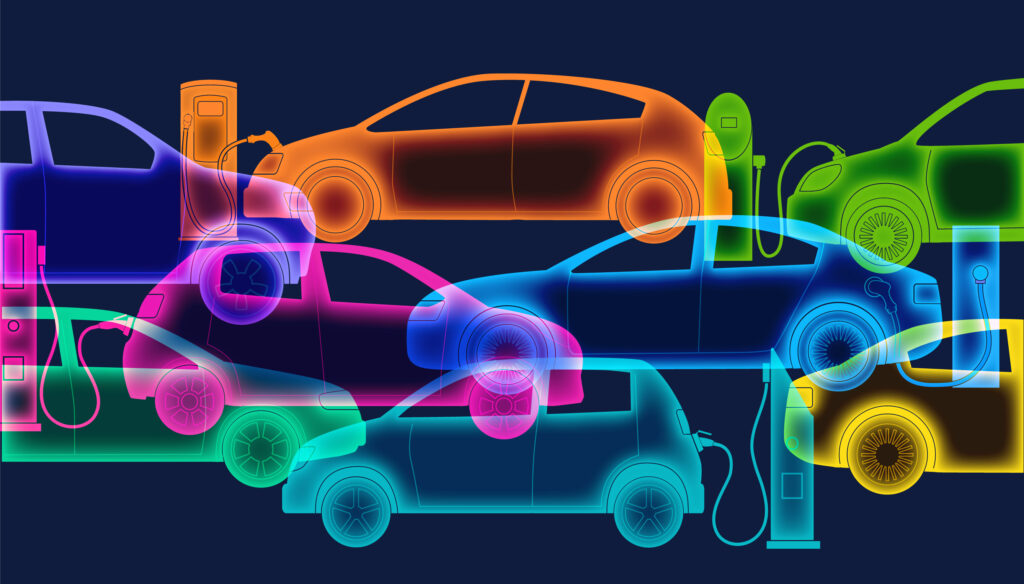
Selecting the right EVs for your fleet is very different from buying traditional vehicles, especially since you’ll be much more familiar with a GMC Savana than a BrightDrop Zevo 400. That’s where a process known as the electric vehicle suitability assessment can be so useful to your decision-making.
The suitability assessment
A good suitability assessment compares data from your traditional fleet to the capabilities of electric vehicles on the market (or coming soon) to find the best matches. It will take into account climate factors like the temperature in your area and, if relevant, payload.
A comprehensive EV assessment will show you:
- The best candidates in your existing fleet for EV replacement;
- The best coming EV models for your needs;
- A lifecycle cost savings analysis, revealing which EVs make the most sense for the bottom line; and
- The emissions reduction potential of your electrified fleet.
Analyzing your fleet operations
- What is the daily distance driven? This will help determine the electric range needed.
- What type of driving is it? As we explored earlier stop-and-go city driving gets better range than highway driving in EVs – the opposite of what you find in a combustion vehicle.
“The more city driving and traffic and the more stops you have, the better the electric vehicles will look. As opposed to a conventional vehicle, the more highway and higher speeds and fewer stops, the worse the suitability of the electric vehicle.”
— Pierre Ducharme, Marcon-Miratech
- Where will the vehicles “sleep”? Are they parked at employees’ homes or at a company facility? For how long? This impacts charging options, as you’ll typically be installing faster chargers at company-owned facilities.
- What is the worst-case scenario? Figure out the worst possible conditions that will affect EV range. Think about the weather, temperature and any external factors that could reduce your vehicle’s effective range, and work from there. The goal is to give your drivers enough leeway to avoid adding constraints that aren’t there with ICE vehicles.
- The bottom line: Do not be tempted by a car commercial or cool start-up until you’ve done your research.
How to conduct an EV suitability assessment
If you have a very small fleet with regular city-centre routes your electric vehicle suitability assessment might be as simple as just keeping track of mileage and accounting for winter range. If this is your scenario, be sure to factor in seasonal traffic peaks (such as air conditioning season for HVAC technicians or the holiday rush for delivery companies).
Read more: There may be financial assistance available for your suitability assessment
Using telematics for a data-driven assessment

When assessing larger fleets, more in-depth tracking based on telematics data might be required to gain the insight you need. Telematics records everything from mileage to speed to driving styles and fuel consumption. Generally, you will want to track a minimum of three weeks of driving — some experts recommend three months. If you have a business with high seasonality, you’ll want a longer window to ensure you get a complete picture of your needs.
Geotab’s telematics platform has an electric vehicle suitability assessment (EVSA) plug-in that can give preliminary analysis, including factoring in temperature, fuel costs and potential EV swaps.
“We swallow in the data of the way you drove the current (combustion) vehicle in the past year,” says Geotab advisor Matt Stevens. “For instance, we’ll know that your van drove 84 kilometres in Montreal on this highway in winter. So we’ll check to see if the E-Transit will be able to do that, and then we’ll see if it will save you money, and figure out the GHG emissions savings. We add any needed seasonal effects, and model every vehicle that you might consider electrifying.”
Who can help conduct the assessment?
There are specialized consultants who can help you with this step, and for a larger fleet, this is a valuable investment that will result in a long-term game plan for electrification. Consultants will also be able to ballpark costs, from procurement to charging. An EV-minded fleet leasing company will also be able to provide this service.
Read the case study of a fleet suitability assessment now ongoing in B.C., in the next section. (Remember to save your progress!)
Reproduction of any or all of this material is strictly prohibited without permission. Please contact fleets@electricautonomy.ca for inquiries. Copyright © 2026 – Electric Autonomy Canada – ArcAscent Inc. – All Rights Reserved
Want to learn more? Sign up or log in so you can track your progress, earn a course certificate and receive exclusive invitations to our live learning sessions.